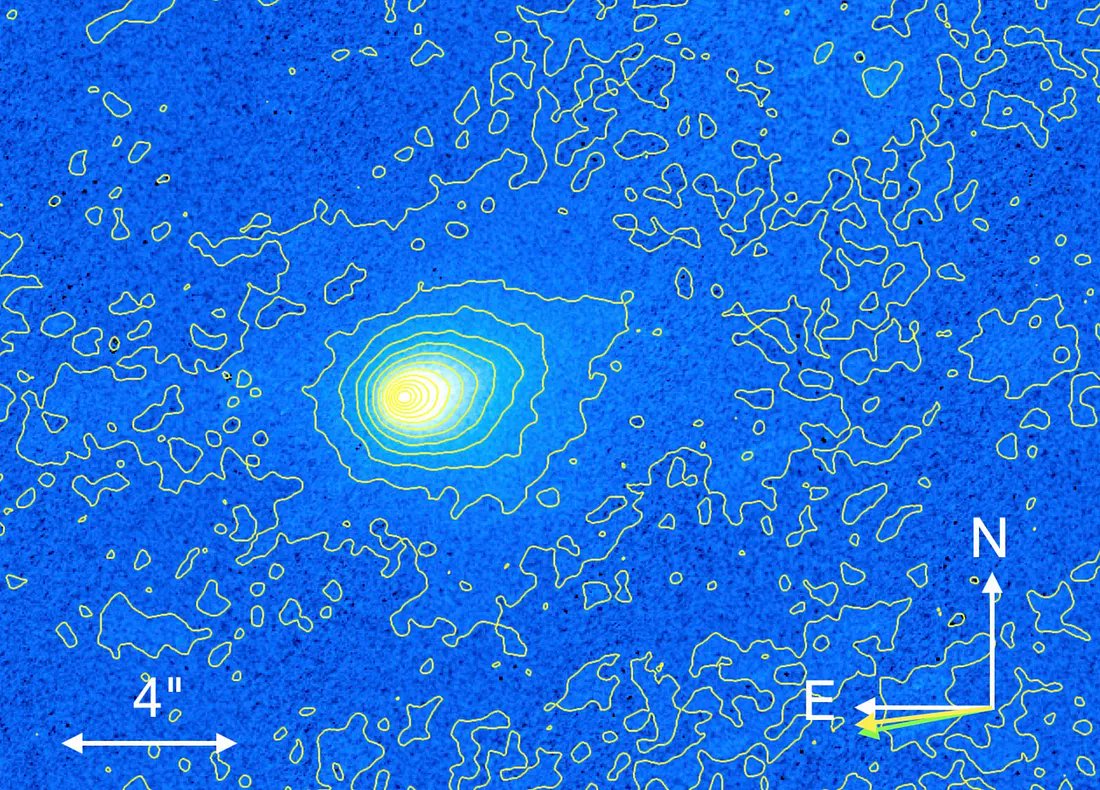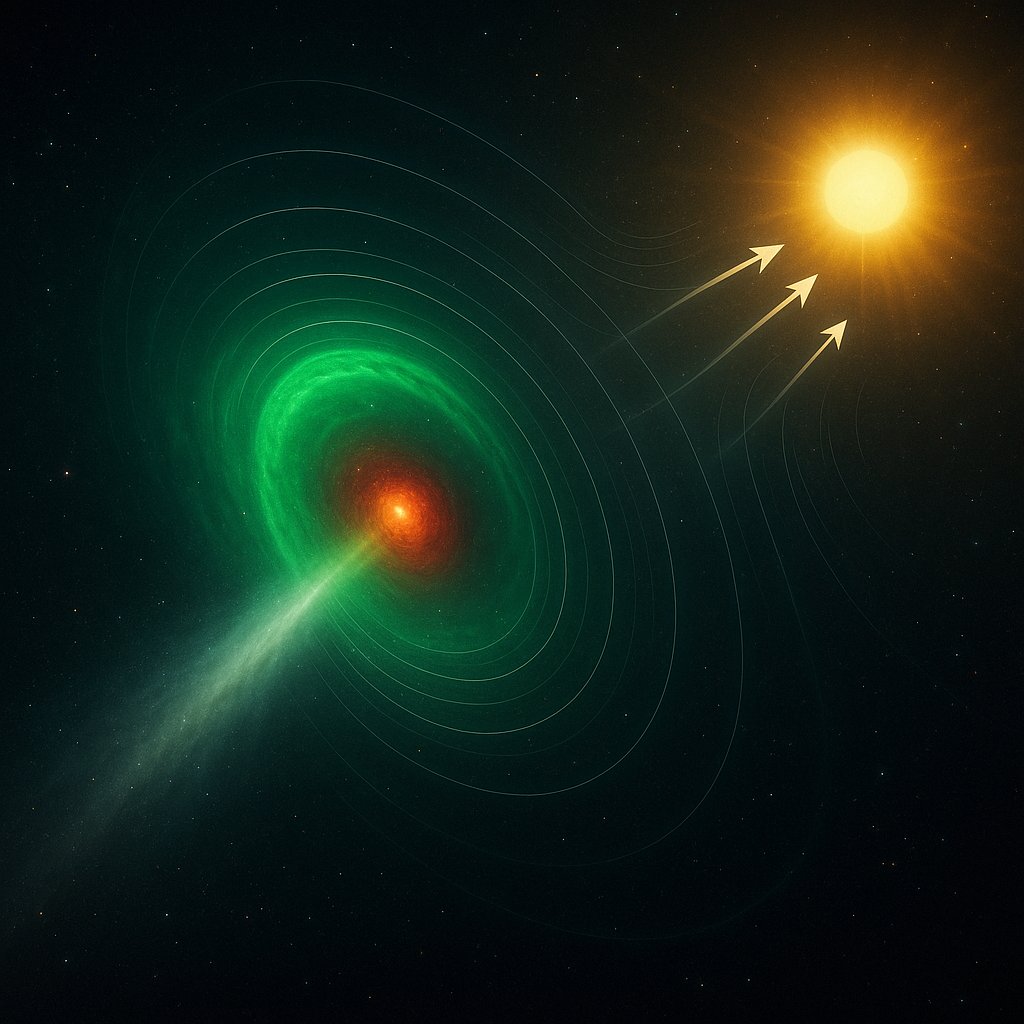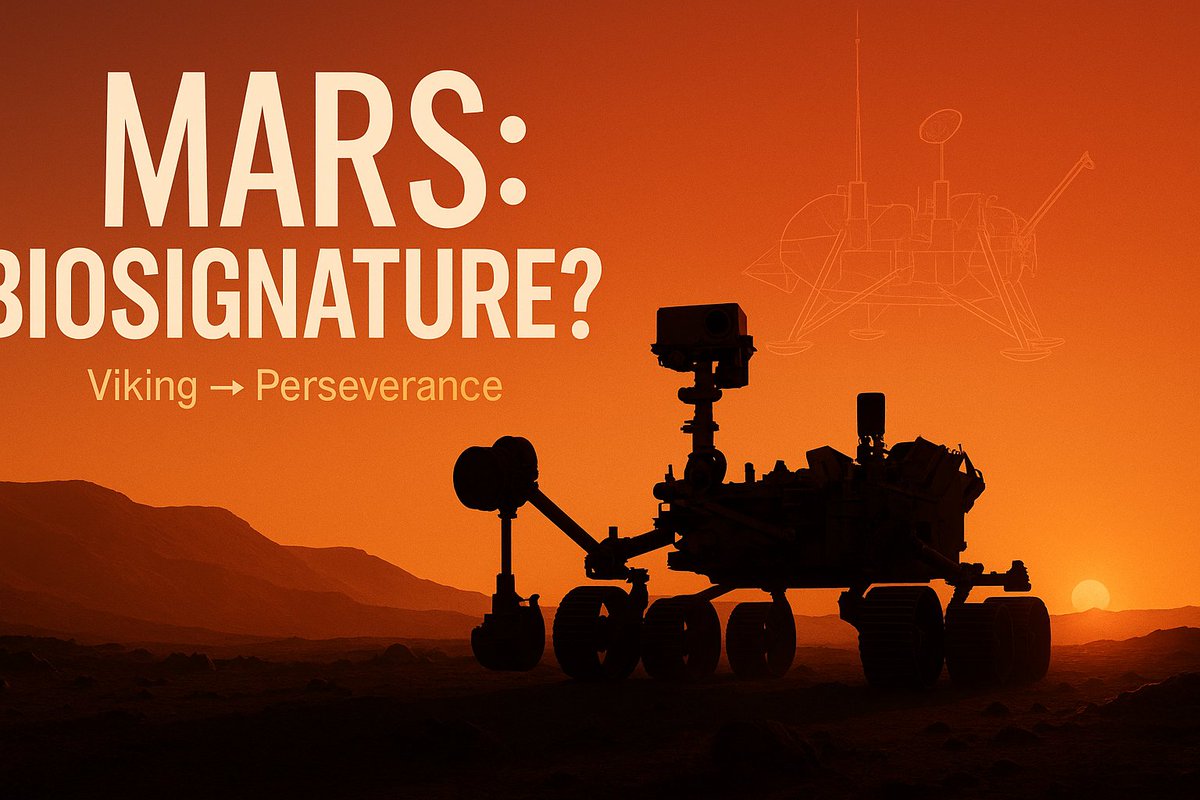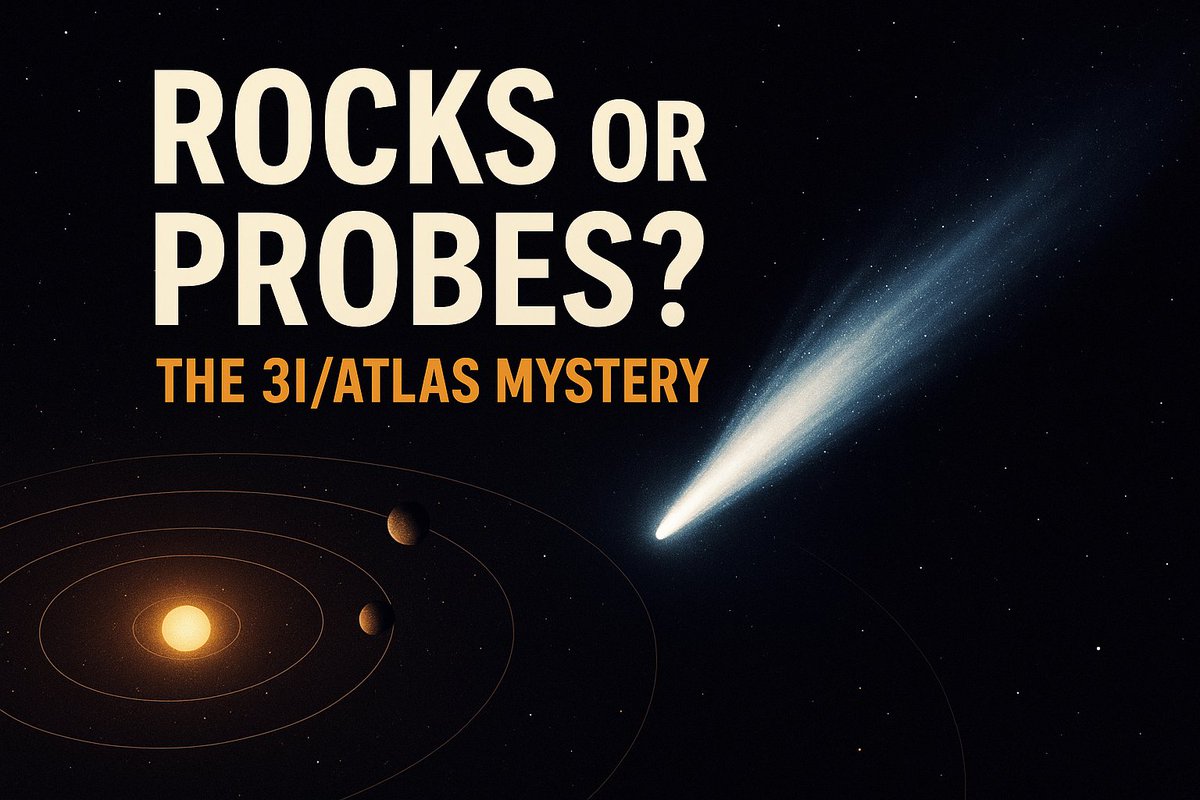🚨 The Sunward Glow of 3I/ATLAS is 10x Longer Than It is Wide 🚨
Avi Loeb & Eric Keto’s new Hubble analysis just revealed something unprecedented about our latest interstellar visitor.
Buckle up this one changes the game. 🧵👇
Avi Loeb & Eric Keto’s new Hubble analysis just revealed something unprecedented about our latest interstellar visitor.
Buckle up this one changes the game. 🧵👇

1/
On July 21, 2025, Hubble snapped a sharp image of 3I/ATLAS. Instead of a normal comet-like tail pointing away from the Sun, the scattered sunlight glow was elongated toward the Sun.
That shouldn’t happen, and yet, it did.
On July 21, 2025, Hubble snapped a sharp image of 3I/ATLAS. Instead of a normal comet-like tail pointing away from the Sun, the scattered sunlight glow was elongated toward the Sun.
That shouldn’t happen, and yet, it did.
2/
Loeb & Keto calculated the geometry. Because Earth’s view was only 10° off the Sun–object line, the actual elongation is magnified by a factor of 5.76.
Meaning, if you looked straight down at it, the glow extends 10 times farther toward the Sun than it does sideways or backwards.
Loeb & Keto calculated the geometry. Because Earth’s view was only 10° off the Sun–object line, the actual elongation is magnified by a factor of 5.76.
Meaning, if you looked straight down at it, the glow extends 10 times farther toward the Sun than it does sideways or backwards.
3/
This is the opposite of what we know about comet physics. Normally, dust grains scatter sunlight and get pushed away by solar radiation pressure forming tails pointing away from the Sun.
3I/ATLAS has an anti-tail.
This is the opposite of what we know about comet physics. Normally, dust grains scatter sunlight and get pushed away by solar radiation pressure forming tails pointing away from the Sun.
3I/ATLAS has an anti-tail.
4/
Loeb suggests ice fragments instead of dust form the anti-tail. Launched from the Sun-facing side, the largest chunks survive much longer and create the elongated sunward glow.
But this explanation is provisional, other causes could be at play.
Loeb suggests ice fragments instead of dust form the anti-tail. Launched from the Sun-facing side, the largest chunks survive much longer and create the elongated sunward glow.
But this explanation is provisional, other causes could be at play.
5/
The anomalies don’t stop there. Loeb listed five unprecedented properties of 3I/ATLAS on CBS News’ Question Everything:
• A retrograde trajectory aligned to the ecliptic within 5° (chance = 1/500).
• Possible mass 1 million times greater than 2I/Borisov.
• The unique anti-tail.
• A CO₂ rich plume with industrial-like nickel alloys.
• Polarization unlike any comet ever seen.
The anomalies don’t stop there. Loeb listed five unprecedented properties of 3I/ATLAS on CBS News’ Question Everything:
• A retrograde trajectory aligned to the ecliptic within 5° (chance = 1/500).
• Possible mass 1 million times greater than 2I/Borisov.
• The unique anti-tail.
• A CO₂ rich plume with industrial-like nickel alloys.
• Polarization unlike any comet ever seen.
6/
On October 3, 2025, NASA’s HiRISE camera aboard Mars Reconnaissance Orbiter will photograph 3I/ATLAS at 30 km resolution per pixel, our best chance yet to constrain its nucleus size.
This could confirm whether it’s tens of kilometers across, or something stranger.
On October 3, 2025, NASA’s HiRISE camera aboard Mars Reconnaissance Orbiter will photograph 3I/ATLAS at 30 km resolution per pixel, our best chance yet to constrain its nucleus size.
This could confirm whether it’s tens of kilometers across, or something stranger.
7/
Every anomaly by itself might be dismissed. But together, the retrograde orbit, CO₂ plume, nickel without iron, cyanide spikes, negative polarization, and a sunward anti-tail…
The combination screams “Not a normal comet.”
Every anomaly by itself might be dismissed. But together, the retrograde orbit, CO₂ plume, nickel without iron, cyanide spikes, negative polarization, and a sunward anti-tail…
The combination screams “Not a normal comet.”
8/ Loeb:
“In the existing scientific literature on 3I/ATLAS, each anomaly is shoved under the carpet of traditional thinking. But the combination argues for something more interesting. We should question everything.”
“In the existing scientific literature on 3I/ATLAS, each anomaly is shoved under the carpet of traditional thinking. But the combination argues for something more interesting. We should question everything.”
9/
As 3I/ATLAS races past Mars and deeper into the inner solar system, telescopes worldwide are turning toward it.
What happens when it swings close to the Sun may decide if this is just another rock, or the first interstellar probe we’ve ever seen.
As 3I/ATLAS races past Mars and deeper into the inner solar system, telescopes worldwide are turning toward it.
What happens when it swings close to the Sun may decide if this is just another rock, or the first interstellar probe we’ve ever seen.
Stay tuned. The universe might be telling us there is something new under the Sun.
Follow for more updates.
Share if you enjoyed.
Source:
#3IATLAS #Interstellar #UAP #Astronomy #Spacemedium.com/@avi-loeb/the-…
Follow for more updates.
Share if you enjoyed.
Source:
#3IATLAS #Interstellar #UAP #Astronomy #Spacemedium.com/@avi-loeb/the-…
• • •
Missing some Tweet in this thread? You can try to
force a refresh








